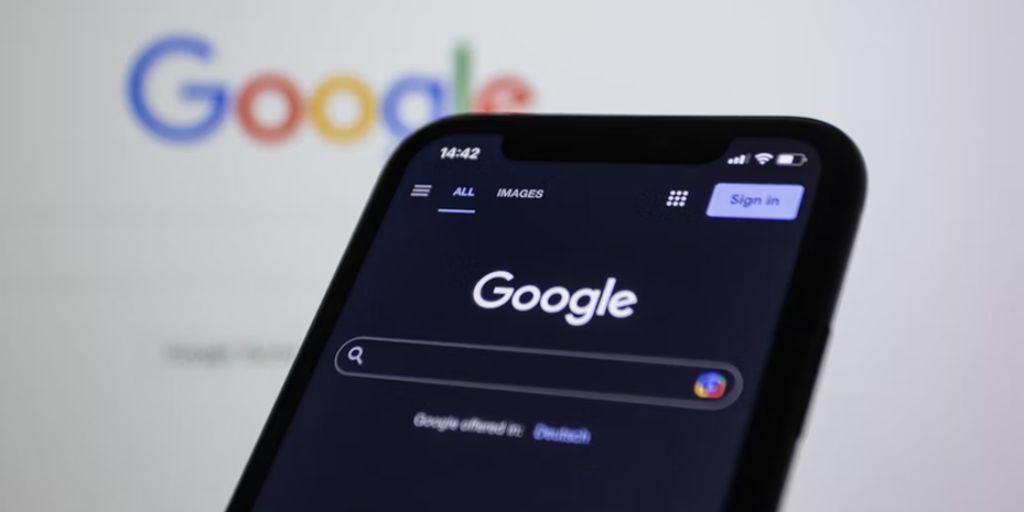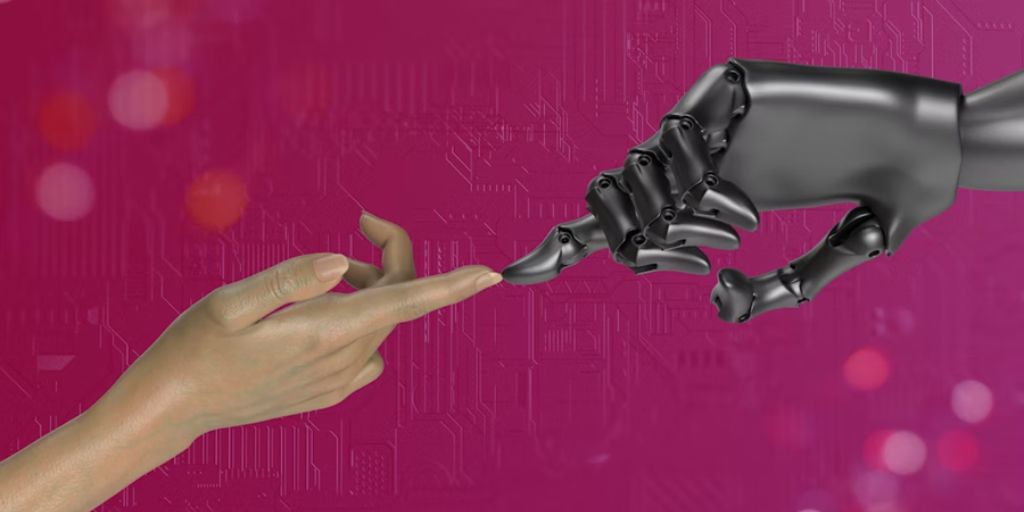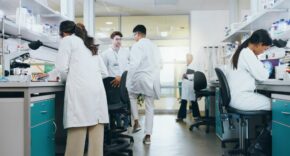
URL: https://unsplash.com/photos/a-close-up-of-a-cell-phone-with-the-google-logo-in-the-background-0uMU42uRw28
According to a study from InstantScripts, nearly a third (30%) of respondents admitted they had used online research to self-diagnose a physical or mental health issue in the past. Data shows that many Australians are guilty of using tools like Google to self-diagnose.
Similar research reveals that more than a third of Australians also become convinced they have a life-threatening or terminal illness after Googling their symptoms. Self-diagnosis is a slippery slope, and when using tools like Google, it can do more harm than good.
We’re all guilty of Googling our symptoms to find out what’s wrong when we’re sick, but as of yet, there are no tools that can compete with the expertise of someone who has completed a nursing course online or further education in the medical space.
With that being said, the rise of artificial intelligence (AI) could rival and support the healthcare industry. According to the CSIRO, Australia’s national science agency, the use of AI tools in healthcare could be useful in prevention, diagnosis, monitoring, and treatment.
If you’re curious about how the rise of AI tools, like ChatGPT, compares to Google and other search engines for self-diagnosis, this article is for you. It also explores the significance of digital health tools, particularly in addressing healthcare disparities.
What is self-diagnosis?
Self-diagnosis refers to when an individual, instead of seeking the help of a healthcare professional, draws conclusions about their symptoms using online tools. Self-diagnosis is commonly done using internet searches, online tests, and websites like WebMD.
In the age of the internet and social media, self-diagnosis is on the rise. There are benefits to this, especially when it comes to promoting awareness of conditions, but there are downsides, too.
The benefits
Despite the stigma of self-diagnosing, there are a few benefits of using tools such as WebMD. Although there can be risks with self-diagnosis, there are also a range of benefits, including:
- Increased self-awareness about health and overall well-being
- It promotes open dialogue and can help discussions with health professionals
- Can help people improve their health literacy and access to resources
- Contributes to bridging inequity gaps and accessibility in healthcare
Self-diagnosis through tools like ChatGPT and WebMD can be a good way to improve your health literacy when used in moderation and critically. Like any tool, there are some risks involved, but the tools can be educational and helpful if utilised properly.
The drawbacks
It’s also important to understand the drawbacks involved with using digital health tools for self-diagnosis. The potential negatives include:
- Self-diagnosis comes with a massive risk of mislabeling and trivialisation
- It lacks the expertise and nuance of a professional diagnosis
- Contributes to the pathologisation of things that aren’t pathological
- If symptoms and severity are misinterpreted, it can lead to anxiety
- This can lead to misinformation being shared and promoted

URL: https://unsplash.com/photos/two-hands-touching-each-other-in-front-of-a-pink-background-gVQLAbGVB6Q
Google & self-diagnosis
According to the Australian Medical Association, only 79% of people have a usual/preferred general practitioner (GP). Furthermore, only 75% of people could always see their preferred GP when needed.
With a significant number of people not having a primary care provider, accessing medical services, and costs increasing, it’s no surprise that do-it-yourself diagnosing is on the rise. According to a new study, one in 4 people say they’ve used social media for self-diagnosis.
While self-diagnosis has its benefits, current search engines and platforms, such as WebMD, are insufficient. They can lead to misdiagnosis, inaccurate treatment, and/or delayed care for serious conditions.
This is because many of the factors a medical professional would consider, such as medical history and lifestyle, tools like WebMD can’t ‘see’. These tools don’t have access to a person’s complete medical history and can’t ask questions to inform a diagnosis.
Could AI replace Google?
In the areas where current self-diagnosis tools, such as Google and WebMD, are lacking, is where artificial intelligence can shine. New generative artificial intelligence chatbots, such as Gemini and ChatGPT, can facilitate more comprehensive self-diagnosis.
This is because it’s possible to feed generative AI tools information on factors such as medical history and lifestyle, allowing for a more reliable diagnosis. Generative AI tools are also rapidly improving in real-time, so accuracy is getting better by the day.
Unlike Google, where people have to draw their own conclusions for their self-diagnosis, generative AI chatbots provide an answer in real time based on the information you provide. This can reduce the risk of people misrepresenting their symptoms and misdiagnosing themselves.
Another benefit of generative AI chatbots is that they are designed to mimic human conversation. It can replicate a scenario similar to speaking with a healthcare provider in real-time, receiving immediate responses about your symptoms, treatment options, and advice.
A recent article in The Medical Journal of Australia shows that nearly 9.9% of Australian adults have already turned to ChatGPT for health-related information in the past six months. Generative AI chatbots are already beginning to replace Google and WebMD.
The importance of self-diagnosis
Statistics reveal that access and barriers to healthcare services, from GPs to specialists and hospitals, are increasing. Many people are delaying or not seeing a health professional at all due to increased cost or long wait times, particularly in disadvantaged areas.
AI-driven health tools could be a vital resource in combating these health inequalities. Although the technology needs more time to develop, it could be an affordable and quick way for people to receive health advice without having to see a professional.
Self-diagnosis is important because it can help people access health advice and treatment where they otherwise couldn’t. Similarly, it promotes discussion and awareness of conditions, such as mental health, and can help reduce stigma.
Although generative AI chatbots are still an emerging technology, many people are starting to use them over traditional self-diagnosis methods. AI replacing Google may be beneficial as tools like ChatGPT and Gemini can provide a more accurate diagnosis and thorough advice personalised for the individual.











